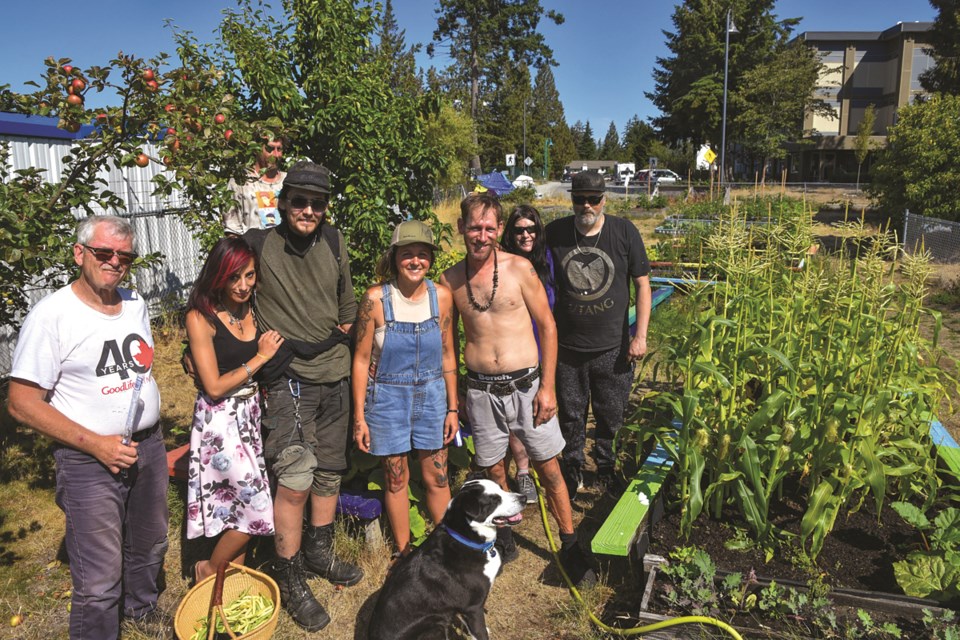If you have taken a stroll through the garden behind the Community Services offices on Inlet Avenue recently, you’ll likely notice a blast of colourful paint, the scent of fresh vegetables, and, on particular days, the buzz of gardening activity. Behind this initiative is the Sunshine Coast Community Action Team (with support from the Sunshine Coast Community Services Food Program), but neither of these organizations are the leaders or managers. This is a peer-led program providing skills, empowerment, connections, and decision-making to individuals with lived and living experience. As a result of this model, all kinds of good things are growing.
The program allows peers to earn a small income by doing wholesome work, something that is often unattainable to those experiencing homelessness, addiction, and mental health challenges. It’s not easy to find a job and show up on time and ready to work when you don’t have a place to sleep, eat or shower. The peer garden uses a drop-in, first-come, first-served model and pays cash in hand at the end of every shift. Peers can come as they are.
In two and a half short months, peers have come together to engender growth both in the garden and in themselves, and so far, the results are spectacular. Walking through the rows of squash, cabbage, kale and beans, it’s easy to tell that this work has been a labour of love for the peer community.
Jaylene Schieble, programs assistant with the Sunshine Coast Community Action Team, is glowing when she talks about the initiative peers have shown in the garden since clearing the weeds and planting the first seeds in late April. "I always say that it is hard being a human. Imagine what it is like for folks who wake up every day to the reality of living unhoused, with addiction and mental health disorders and intergenerational trauma. It is said that all the world's problems can be solved in a garden. I get to witness hope, healing, and community growth every day I spend with the peers working in the garden."
Peers meet up in the garden twice a week for work sessions. They share skills and knowledge along with stories and personal experiences. Vegetables harvested are offered to the Sechelt Food Bank, the Fresh Food for All market, RainCity’s Hightide supportive housing kitchen and Arrowhead Clubhouse.
The group has formed a close-knit community, and folks are showing up and supporting each other in all aspects of their lives. They have formed a sense of pride in the work they are doing and are bringing their friends.
The peers themselves came together to write a statement collectively: “We are helping the community by working together. We are bonding by feeding the community and building friendship and camaraderie. It gives us a sense of purpose and we are growing love and making new friends and memories.”
For Chris Hergesheimer, lead food programmer at SCCSS, this project represents potential. “Cultivating this sweet urban garden has just been beyond my capacity to organize the last few years due to a host of new food access programs we are rolling out. But watching the leadership and hard work from the neighbourhood bringing these beds to life has been inspiring. Seeing folks in the garden doing this work and animating this space ties directly to our mission to use food in a whole bunch of ways to build community and health.”
To learn more about the peer gardening initiative and other peer-led projects on the Sunshine Coast, contact Jaylene Schieble, programs assistant with the Sunshine Coast Community Action Team at [email protected].




